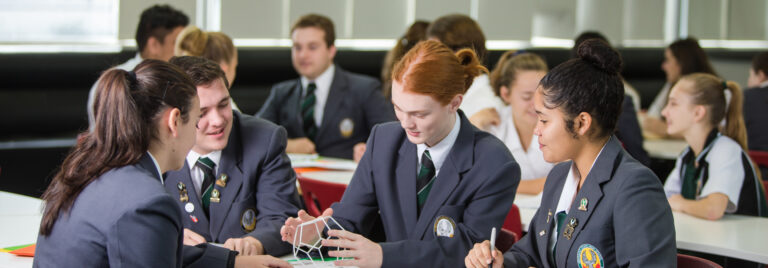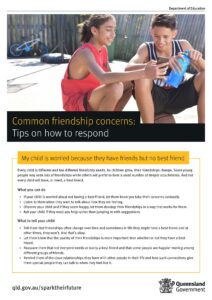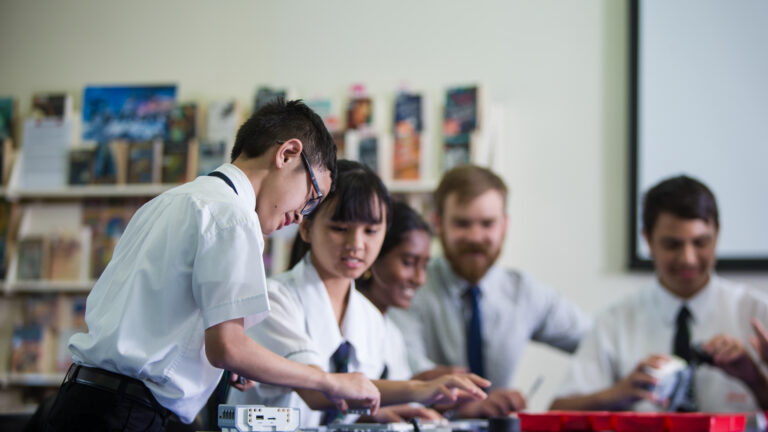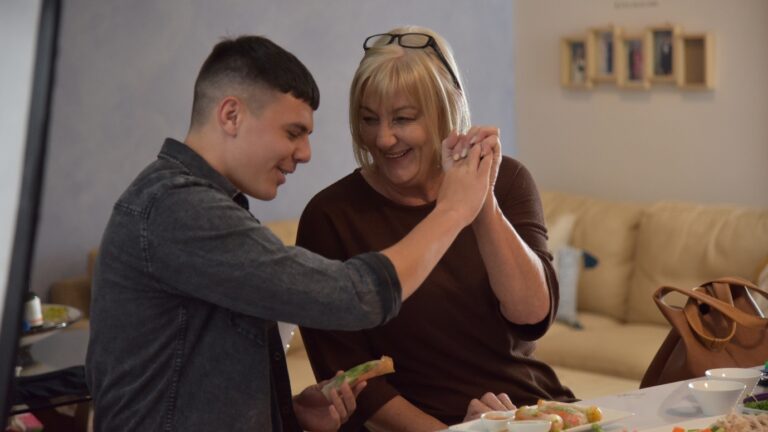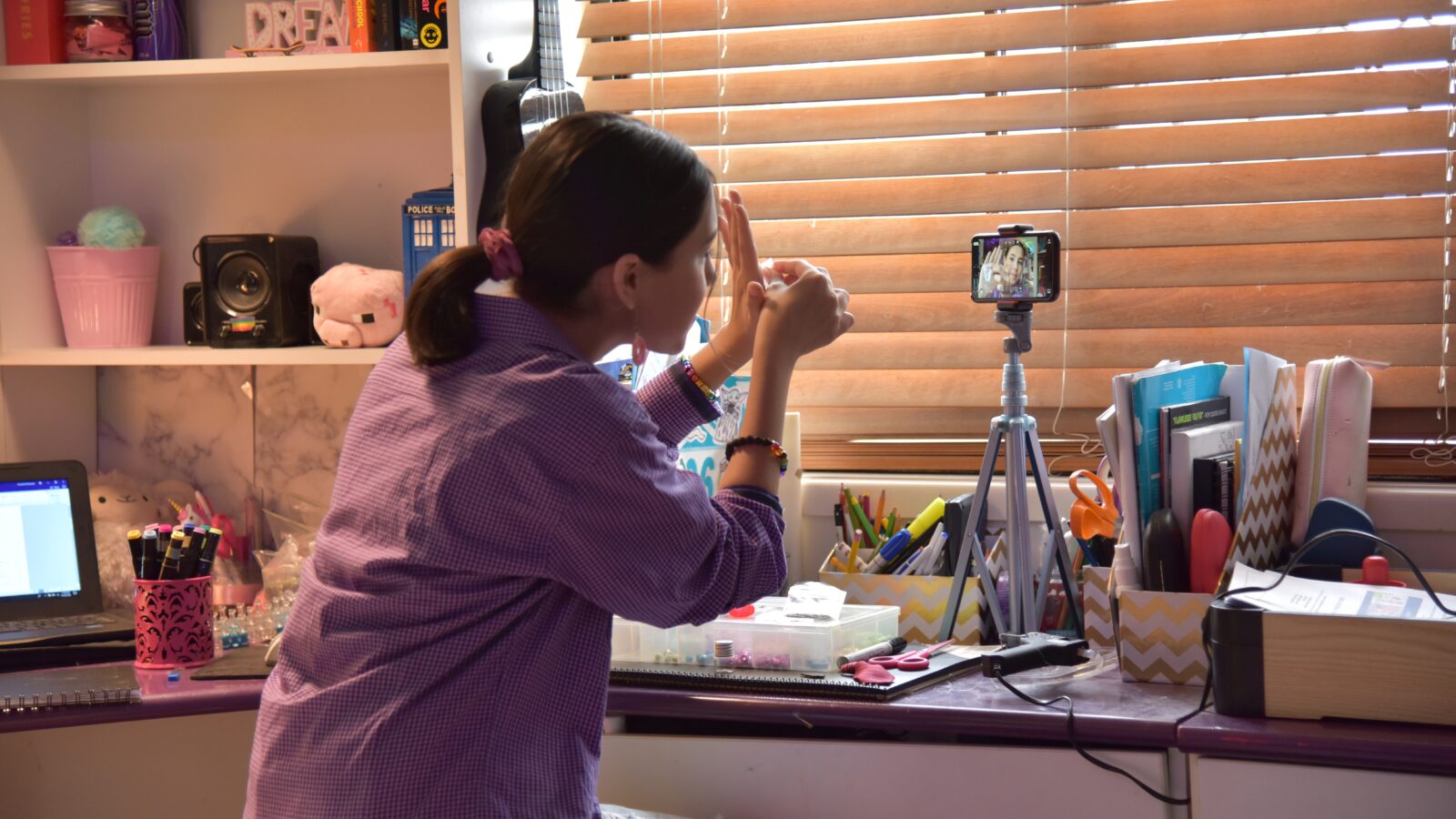1. Friendships create a sense of belonging
Research1 has found that belonging – that feeling of being a part of something – helps us function better in the world. Belonging promotes positive mental health, physical wellbeing and a better focus on learning. It can also give us a sense of purpose and meaning. Friendships with other students can give children a sense of belonging and a greater connection to their school. For some children, building a sense of belonging can happen in other ways. Sometimes young people can also build a sense of belonging at school through connections with their teachers, more so than their peers. This is backed up by research2 that found that students who experience close and supportive relationships with their teachers are more likely to interact positively with other classmates, to excel academically, and to feel a sense of belonging at school.
2. Friendships can develop children’s social skills
Friendships help children develop their social skills. Children who develop life skills, such as how to work with other people and manage conflict, are less likely to have social and emotional difficulties later in life. And having positive friendships helps make school a fun and supportive place to be. As children get older, social situations can get more challenging and test and grow their social skills. Managing these interactions is an important learning experience, but it’s important to watch for when such social challenges impact on your child’s wellbeing, when they might need guidance and support to manage those challenges is a positive way, and also if they know when to seek help.
3. Friendships can promote learning
Strong relationships with other children at school can help children feel more engaged. Being engaged at school helps children learn better and makes them less likely to leave school early. Research3 has found that when children work with someone they like, they are likely to learn more. A recent analysis4 looked at studies conducted over the past 35 years that investigated the performance of groups consisting of friends. The analysis showed that groups of friends perform better than groups of acquaintances. Such studies suggest that people are more motivated to perform when working in a group of friends and for many children, having friends at school can be a powerful source of help, encouragement and motivation.
4. Friendships can reduce stress
Positive friendships can help reduce stress, especially during the teenage years. A 2011 study5 showed that the presence of a best friend can protect against the effects of negative experiences. A further study6 also found that while friends cannot completely eliminate the stress of being excluded by other children, having friends can reduce it. The 2019 ‘Growing up in Australia’ study also found that close relationships make kids stronger. The study found that those young people with at least one good friend had higher resilience scores than those teens who said they did not have a good friend.
5. Friendships can help school transitions
School and class transitions in the primary years and into high school can be stressful for some students. Having someone they know by their side can make such transitions much easier, especially for those children who might struggle with change and new situations. While friendships are just one of the many things you consider when choosing a school for your child, being around people they know can help children adjust to a new situation. You can help your child’s transition by fostering relationships with kids going to the same high school so there will be something familiar in your child’s new environment. In the end though, what matters most is to find the school that is the best fit for your child as their friendships are likely to change during these years.
Remember: every child is different and friendships are always changing
Every child is different and will have different friendship needs. In the early years of school, kids tend to change friends often, and may play with children because of shared circumstances such as living nearby, being in the same class, sharing the same interests or having parents who are friends. Over time, their friendships will become more stable as they form deeper connections with kids who share interests, values, or loyalty with, and feel safe to talk to about their feelings and thoughts. By this age, children can be concerned with fitting in and being the same as others. These connections can become friendships that last despite being in different classes.
As children mature and enter the teen years, they tend to seek out friends who make them feel secure and give them love and acceptance at a time in their lives when the need to belong is paramount. As they go through the many physical and emotional changes that come with the teen years, the intimacy and trust between friends increases. Some young people may seek lots of less substantial friendships while others will prefer to form a small number of deeper attachments. It’s all part of young people exploring who they are so it’s important to give them freedom they need to develop friendships that feel socially safe and right to them.
Helping your child recognise an unhealthy friendship
Not all friendships are positive so it’s important you help your child recognise what an unhealthy or toxic friendship looks like. You can do this by talking about how good friends behave in a kind, respectful and inclusive way. Also encourage your child to develop a range of friends at school, and outside school, including at sporting clubs, music groups, family and neighbours. That way, if something is going wrong with a friendship, your child will have other friends to turn to. Check-in regularly with your child to see how things are going with their friends and if you have any concerns, speak to their teacher or a school guidance officer.
If your child has a disability or other individual needs
Children with a disability or other individual needs might need extra support to build their relationships with other children at school. Talk to the school and seek their help in supporting your child. For some of you, the Autism Hub and Reading and Writing Centre may also be a useful place to gather information to help you support your child at school.
Download tip sheet: Common friendship problems
References
- Allen, K and Bowles, T, Belonging as a guiding principle in the education of adolescents (2012)
- Van Bergen, P, McGrath, K and Quin, D, The benefits of close student-teacher relationships and how to nurture them. In book: Inclusive education for the 21st century (2020)
- Hartl, A, DeLay, D, Laursen, B, Denner, J, Werner, L, Campe, Shannon and Ortiz, Eloy, Dyadic instruction for middle school students: liking promotes learning (2016)
- Chung, S, Lount, R, Man Park, H and Park, E, Friends with performance benefits: a meta-analysis on the relationship between friendship and group performance (2017)
- Adams, R, Santo, J and Bukowski, W, The presence of a best friend buffers the effects of negative experiences, (2011)
- Peters, E, Riksen-Walraven, M, Cillessen, A, de Weerth, C, Peer rejection and HPA activity in middle childhood: friendship makes a difference (2011)
Last Updated: 02 July 2023

